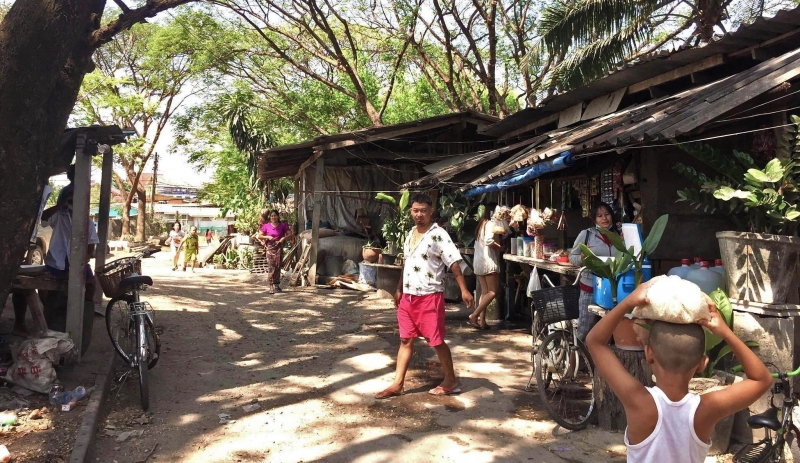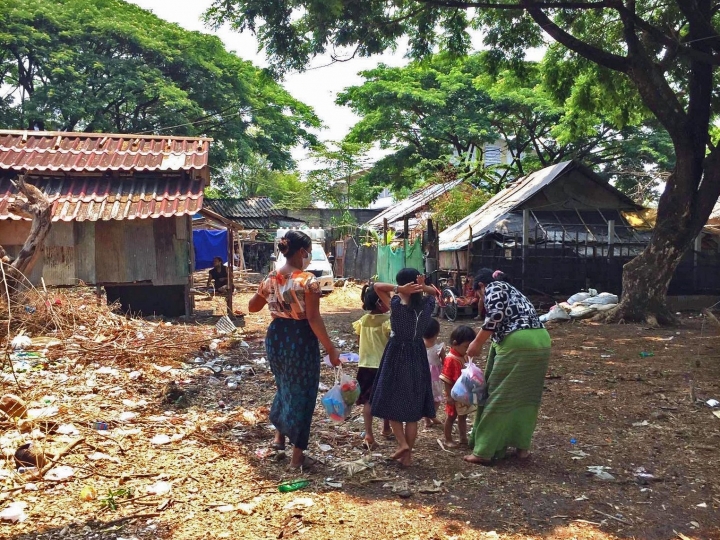NHRF’s grantee Friends Without Borders works in the Mae Sot district of northern Thailand, close to the Myanmar border – a key location for the passing of migrant workers into Thailand from Myanmar. They work primarily in schools for the migrant population to promote labour rights and work against sexual and gender-based violence (SGBV) among students and teachers in migrant communities from Myanmar.
Unlike many other countries in Asia, the COVID-19 pandemic has not severely affected Thailand. Despite this, the Thai government imposed strict lockdown measures twice during 2020, and also declared a “State of Emergency” in March 2020. At the same time, Thailand was throughout 2020 mired in hundreds of pro-democracy protests across the country calling for democratic reforms, and strict COVID-19 measures has been used to curtail freedom of expression and association and to stem the protests. Thai schools were closed in March 2020 but reopened again in July 2020, and the strict measures were gradually lifted between July and August as COVID-19 cases decreased. Although Thai schools in some areas have closed again this year, migrant schools in Mae Sot have remained closed the entire period.
Education for migrants in Mae Sot

As attention has largely been focused on the important pro-democracy protests throughout 2020, the situation for these migrant schools has gone unnoticed. Migrant schools run by migrant teachers or Thai citizens of ethnic minorities have had little or no ability to bring up their issues with the Thai authorities. The closing of schools for the migrant community has barred children from accessing education, as these marginalized migrant communities from Myanmar have not been offered digital alternatives to continue the education by the government. However, some initiatives have been organized by local and international organizations that have provided teaching at the students’ homes and encouraging home-schooling.
Currently, the second wave of COVID-19 has hit Mae Sot significantly and the attention is turning back on issues facing migrant communities. These communities, who are in general facing discrimination and marginalization in Thai society, are now experiencing widespread stigmatization if they contract COVID-19 and it is known in the community. The migrant workers are generally more exposed to the disease given the nature of their manual labour jobs that expose them to far more people and increase the risk of infection.
Watch the mini documentary about the situation for migrant children in Mae Sot during the pandemic below. The film is made by Wild Bird Films.
Increased stigmatization against migrants
Friends Without Borders works with migrant students and teachers and organizes workshops, human rights trainings, production of media materials, theatre and films to promote labour rights. Many of these activities have been cancelled due to the closure of schools. However, the organization has shifted its activities to respond to the increased discrimination many in the migrant communities face amid COVID-19. Currently, Friends Without Borders is working to produce media material that challenge the narrative of xenophobia and discrimination against migrant communities, and plan to produce educational sexual and gender-based violence material to inform the public. The organization also supports migrant teachers and students to collect information about the impact of COVID-19, and plans to release a report in Thai and in the Myanmar language.
In the midst of all the challenges posed by the pandemic and the general situation for migrant communities in northern Thailand, Friends Without Borders continues to work for the rights of neglected migrant communities.

